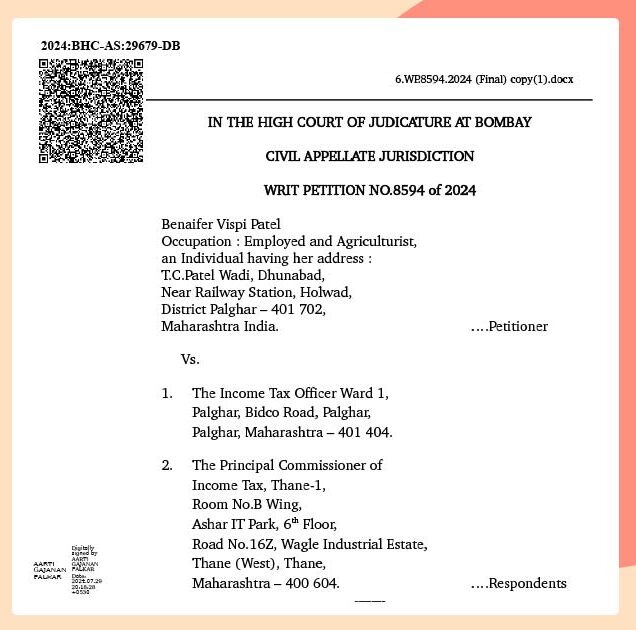Bombay HC: Assessing Officer Must Confirm Information Accuracy Before Starting Reassessment

The Bombay High Court has established that Assessing Officers (AOs) are required to verify the accuracy of information before initiating reassessment proceedings based on faceless data. This decision, rendered by Justices G.S. Kulkarni and Somasekhar Sundaresan, underscores the importance of verification under Section 148 of the Income Tax Act, especially when dealing with data derived from electronic sources as specified in Section 135A.
The court emphasized that AOs should not issue notices under Section 148 without thoroughly verifying relevant materials, whether they originate from the taxpayer or other sources. Such verification is crucial to forming a valid opinion on whether procedural requirements under Section 148A can be bypassed before issuing a notice under Section 148.
In the case at hand, the petitioner had filed an income tax return for the assessment year on December 22, 2020. On January 16, 2021, they received an intimation confirming the acceptance of the declared income without adjustments. However, on April 2, 2021, “interest income” discrepancies were flagged via the Insight Portal.
The portal indicated an income discrepancy, showing Rs. 26,41,234.65 from other sources. The petitioner responded on April 3, 2021, clarifying that the correct interest income was Rs. 8,88,577 and that the additional Rs. 17,52,657.65 was based on incorrect data provided to the tax department.
Over a year later, the petitioner received a reassessment notice under Section 148, accompanied by the necessary approvals and a preliminary verification report (PVR). The approval under Section 151 indicated that the notice could be issued without adhering to the pre-issuance procedures mandated by Section 148A.
The petitioner argued that the reassessment notice was issued arbitrarily, relying solely on erroneous electronic data from the portal, which was generated under Section 135A. They contended that the AO should have carefully reviewed the taxpayer’s responses before issuing the notice, following the required procedural steps.
In a recent ruling, the department acknowledged that the petitioner’s income tax return details were accurate, reflecting the corrected interest income of Rs. 8,72,799.65 in the system. This case highlights the importance of accurate data in tax assessments and the role of technology in ensuring compliance.
Section 135A of the Income Tax Act empowers the Central Government to establish a scheme for the collection and inspection of information, aimed at enhancing transparency by minimizing direct interactions between tax authorities and taxpayers through technological advancements.
The court emphasized the necessity of verification before taking any action that could impact the taxpayer, such as issuing a show-cause notice under Section 148. It stressed that basic scrutiny of the information is essential to ensure it matches the taxpayer’s details, which is necessary for justifying further action under Section 148.
Failure to perform this verification could lead to the misuse of inadequate data, undermining the integrity of the assessment process and rendering the first proviso of Section 148 ineffective. Consequently, the court ruled in favor of the petitioner, declaring the notice under Section 148 as arbitrary and lacking proper consideration. The court ordered that the notice be quashed and set aside, reinforcing the principle that tax authorities must verify diligently before initiating reassessment proceedings.
Case Title: Benaifer Vispi Patel Vs. The Income Tax Officer
Citation: WRIT Petition No. – 1026 of 2024
Date: 15.07.2024
Counsel for Petitioner: Mr. Dharen V. Gandhi
Counsel for Respondent: Mr. Akhileshwar Sharma
Bombay High Court: [Read Order]


